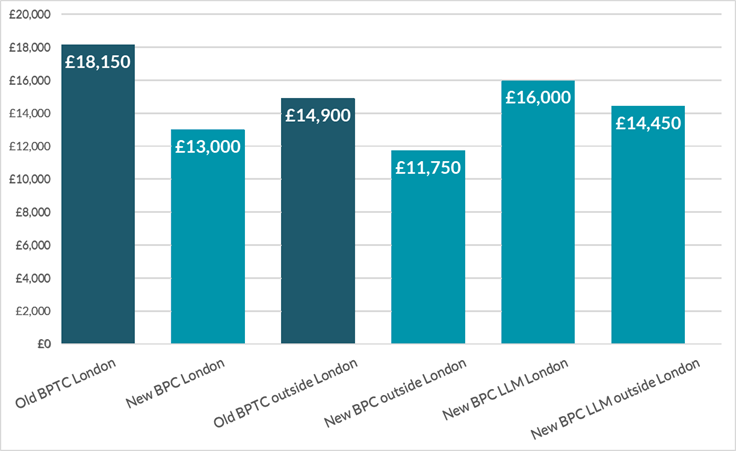
In October the Bar Standards Board announced a new regulatory framework for wannabe barristers. We spoke to Jacqueline Cheltenham, ULaw's Bar Practice Course (BPC) programme director.
Chambers Student: Why have the Bar Standards Board scrapped the BPTC? What are the BSB trying to achieve?
 Jacqueline Cheltenham: The BSB have decided to change the current course to allow for more innovation in teaching the Bar. There are four principles they have created as part of a more outcomes-based regulation. These are flexibility, accessibility, affordability and high standards. In looking at a more outcomes-based regulatory system, they are not specifying as much of the detail of the course as before. There is also no longer a set name for the course.
Jacqueline Cheltenham: The BSB have decided to change the current course to allow for more innovation in teaching the Bar. There are four principles they have created as part of a more outcomes-based regulation. These are flexibility, accessibility, affordability and high standards. In looking at a more outcomes-based regulatory system, they are not specifying as much of the detail of the course as before. There is also no longer a set name for the course.
CS: What are the new rules to the course? What makes the BPC different?
JC: Certain assessments have changed. Civil is now joined with Resolution of Disputes out of Court and these will both be centrally assessed across two assessments. One will be open-book and one closed-book, but the syllabus is the same. Legal Research is being assessed again now as part of Opinion Writing and the options are no longer required for Call to the Bar. However, as part of our new Bar Practice Course Masters it’s possible to undertake optional modules, complete pro bono work or write a dissertation. Additionally, we are introducing more flexibility of start date with a July and a September start for full-time students, whilst retaining our part-time weekend course for September. We are blending online learning features with face-to-face classes where the students are part of a community of learners.
CS: Do you think this change is an improvement for students?
JC: The relaxing of certain rules, such as the numbers who can be taught in a litigation class and the removal of the options as a standard part of the course, means that the course can be more cost effective and these savings are being passed onto students. Some courses have changed to a two-part model with purely online courses for the first part. Students will have to decide if learning difficult topics in this way is likely to work for them.
CS: How will it make the profession more accessible?
JC: The continuation of Bar Courses outside London and the availability of part-time courses mean that the course remains accessible. The new pricing structure also makes the course more accessible in terms of price.
A summary of how ULaw's fees will change:

CS: Do the changes put anyone at a disadvantage?
JC: Students with low income or from low socio economic backgrounds might be attracted to some of the cheaper part one courses, but they (and all students) need to bear in mind that the BSB centralised assessments have proved to be some of the most difficult to pass and that they may not be giving themselves the best chance of passing without regular tutor and peer support. (see above).
CS: Will it create future barristers with a different skill set?
JC: As the use of technology in the law increases, students will be using similar technologies as part of their training. However, they will continue to need, amongst others, the skills of advocacy,written skills, empathy and logic.
CS: What is University of Law offering that other institutions aren’t?
JC: A supportive course utilising blended learning features, including the Synap learning and revision tool,alongside a choice of starts on the FT course, a PT course and a range of ways in which to obtain a Masters qualification.
CS: Are law schools in favour of the changes?
JC: Overall yes. It is good to get the opportunity to embrace the new whilst keeping the best of what came before.
CS: And finally: what one piece of advice do you have for any student considering the Bar?
JC: Do your research and get as much experience as possible, such as mini pupillages or working at legal advice centres. This will help you be certain that it is the career for you and give you an idea of which areas of practice interest you. Also, our selection events as part of our admissions process give you an opportunity to see whether you are ready to start the course. Although many students who successfully pass the Bar Course go onto to have a variety of careers (see MPs in Parliament) it’s good to embark on what is quite a challenging course knowing what your end goal is.